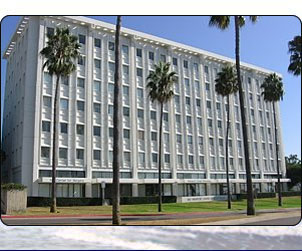FAQ’s
 |
|||

|
 |
Hormones and Hormone Replacement
1. What are hormones?
Hormones are biochemical messengers that carry signals from one cell to another via the blood and transport information from the brain to the organs and from the organs back to the brain. Virtually all multi-cellular organisms have hormones, including plants, and they are essential to the biological advancement of the life cycle. If the hormones are not functioning properly, or are out of balance, the aging process and the diseases associated with aging may be exacerbated.
2. What are the functions of hormones?
Hormones rejuvenate, regenerate, and restore our bodies. They regulate the function and metabolic activity of the body’s tissue and organs and even regulate the production and release of other hormones. Tissue repair, inflammation, bone and muscle structure, brain function (mood, libido, and memory), energy levels, body weight, fertility, and immune function are all processes that are controlled by hormones.
3. What are the major hormones and where are they produced in the body?
The major hormones are cortisol, thyroid hormone, insulin, melatonin, growth hormone, adrenaline, testosterone, estrogen, and progesterone. They are produced in the pituitary and pineal glands (located in the brain), in the thyroid (neck), and adrenal (above the kidneys) glands, and in the ovaries and testicles.
4. How do hormones affect health and the aging process?
Since the hormones influence the function of organs throughout the body, too much or too little can cause imbalances that can have serious health consequences. In males and females, hormone levels begin to decline at age twenty and the gradual loss of function in the subsequent years is attributed to “getting old”. Stress, biological programming, prescription drugs, environmental inputs, and lifestyle habits can all impact the production and regulation of hormones, but hormone replacement and rebalancing can help to insure that you resist infection, prevent chronic disease, and feel (and look) your best.
5. How do hormones affect appearance?
A decline in hormones, especially estrogen in women and testosterone in men, affects all of the body’s tissue and organs. The elasticity, suppleness, and thickness of the skin and the size and tone of the muscle groups are, perhaps, the most noticeable effects of hormonal decline. Hormone replacement, along with exercise and adequate nutrients and hydration can significantly improve muscle mass and the texture and tone of the skin.
6. What is hormone replacement therapy?
Hormone replacement therapy refers to the supplementation of a hormone or a combination of hormones that the body is deficient in to control symptoms related to the deficiency and the imbalances and dysfunction that result from hormone depletion.
7. What happens when hormones are not replaced?
In males, when testosterone production drops, muscle fiber and bone density decreases, as does endurance, strength, and stamina. This syndrome, known as “andropause”, or “male menopause”, is also responsible for a drop in libido and deterioration in sexual performance. Additionally, studies clearly show that the loss of testosterone contributes to the development of atherosclerosis and the narrowing of coronary arteries, which can lead to heart attacks, stroke, and sudden death. The most commonly prescribed hormones for women are estrogen and progesterone, to control the symptoms of menopause, which is defined as the absence of menstrual periods for 12 months and the cessation of ovulation. Hormone replacement in women is also important for the prevention or treatment of cancer, osteoporosis, heart disease and other age-related diseases.
8. Doesn’t hormone replacement in females increase the risk of breast cancer and
heart disease?
In 2002, The Women’s Health Initiative Study demonstrated increased risks of breast cancer and heart disease with synthetic hormones. There is currently no evidence, however, that replacing low hormone levels with natural, or bio-identical hormones increases the incidence of either breast cancer or heart disease. In fact, the risk of dying from breast cancer or heart disease has been shown to be significantly higher when low hormone levels are not replaced.
9. What are bio-identical hormones?
Bio-identical hormones have the same chemical structure as the hormones that are produced in the human body. They are generally derived from plant sources such as soybeans and yams and are not under the jurisdiction of the Food and Drug Administration. They are obtained by prescription from specialists referred to as “compounding pharmacists”.
Aging
Anti-Aging Medicine
Functional Medicine
Preventive Cardiology
Stress
Adrenal Fatigue
Hormones and Hormone Replacement
Nutritional Supplements